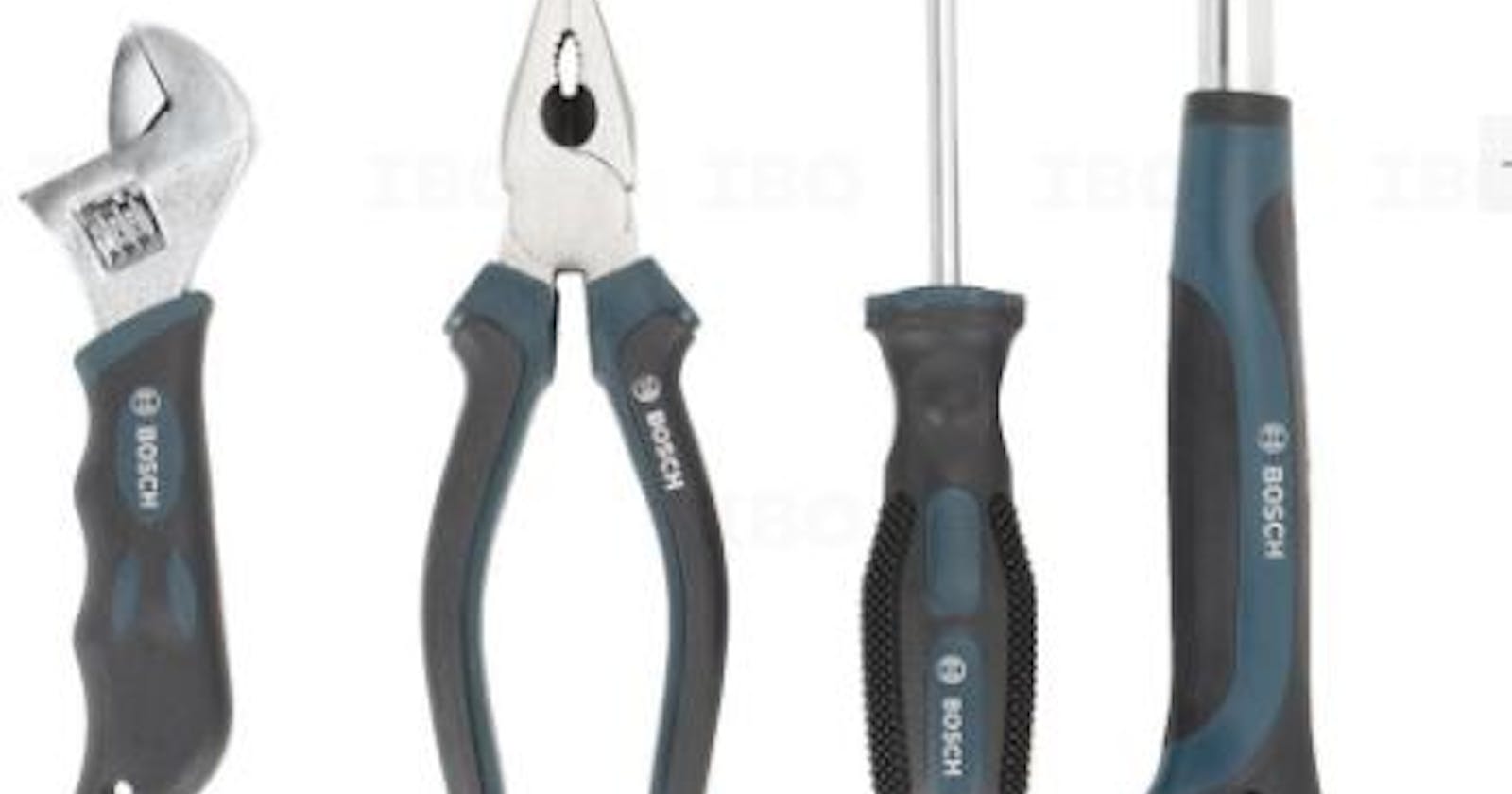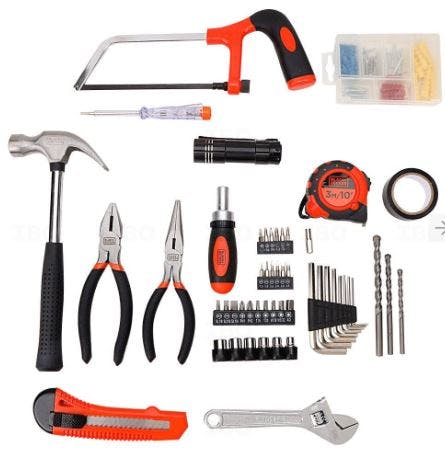Power tools are rapidly replacing manual labour due to technology advancements and the increased pressure to "get the job done" quickly. A 'no-brainer,' given their speed and scale advantages over conventional hand tools.
Is it really that straightforward, though? Using hand tools instead of power tools has some significant benefits. Who knows, maybe I've aroused your attention and you're wondering what these benefits are. Then let's tackle this issue (and others) head-on by reading the following essay.
When compared to power tools, the accuracy of hand tools is far higher. Manual tools are superior for fine carving and detailed work. These don't need batteries or electricity, so you can use them whenever and anywhere you like. Also, compared to power tools, hand tools are more convenient in many other ways. When compared to power tools, why are hand tools preferable?
Let's compare and contrast hand tools with power tools, now that you know the key benefits of each. I'll also explain how and why power tools are inherently riskier than hand ones. I'll discuss the various functions and the categories into which they fall.
What exactly is a hand tool?
Definition: A hand tool is an instrument that can be used without the need for electricity, batteries, or compressed air. There is no need for electricity to power these instruments, making them convenient for use practically anyplace. Hammers, pliers, manual saws, screwdrivers, and wrenches are all examples of manual hand tools.
Portable power tools, despite being small enough to fit in a tool belt or a toolbox, are not regarded to be hand tools. Tools like abrasive wheels, circular saws, grinders, portable belt sanders, and battery-operated drills are good examples of this category. You may also refer to this extensive collection of power tools that I have compiled.
Which is better: hand tools or power tools? You'll find pros and cons to using either manual or power tools. Here are the six most compelling arguments in favour of using a manual hand tool instead of an electric one:
Improved Accuracy
The accuracy of hand tools far exceeds that of electric ones. Using these tools makes it much simpler to carve fine features into wood, metal, and other materials. Jobs needing a high degree of precision, such as making musical instruments or creating wooden artwork, are better suited to hand tools since they can be fully controlled and quickly moved.
2.Not as Quite
When compared to power equipment, hand instruments are typically quieter. When you're in the zone, the last thing you need is a gadget that goes off every few seconds and interrupts your train of thought. Using hand tools also has the added benefit of being easier on your loved ones, neighbours, and coworkers. Power tool use may potentially cause tinnitus (ringing in the ears) and/or permanent hearing loss.
3 Constantly Strive
It's impossible to break a hand tool. They can function independently of electricity, and they don't contain any moving or electronic parts that could malfunction or require maintenance. Also, because there are fewer moving components, they tend to survive longer. It's always ready to use because there's no need to charge it or connect it in.
Better for User Safety
By and large, it is safer to work with hand tools. Compared to the use of power tools, the potential for harm is greatly reduced. Frequently, the maximum speed at which a power tool may operate is quite fast. Their newfound strength makes them a greater threat. Therefore, only individuals with experience and training should operate power tools, since safety is of paramount concern.
5. Less cumbersome
In comparison to power equipment, hand tools tend to be lighter. Because of this, working with them is less of a hassle. Due to their one-handed usability, most of these instruments weigh less than 3 pounds, while power tools can weigh up to 10 pounds. The decreased heft of hand tools makes working with them easy and risk-free.
6. Simpler to Move Around
The majority of hand tools are more manageable in size and weight than their power tool counterparts. Anyone who needs to move their tools around from job to job will find this quite convenient. Considering that they don't need to be plugged into an outlet to function, portable hand tools are also more budget-friendly. Keeping them in good condition is also a breeze. Simply ensure they don't rust.
How Does a Hand Tool Differ from a Power Tool?
I believe the most obvious distinction between a manual tool and a power tool is the necessity for a power source (a battery or electricity, for example) with the latter. Power tools are operated automatically, while the hand tools are used manually. It's not just that these are easier to use because of their simplicity and lack of moving components; they're also easier to learn how to use.
Are there any risks associated with using hand tools?
As long as you keep them well-maintained and know how to utilise them, hand tools are perfectly safe to work with. When tools are misused, especially if they are broken or loose, accidents can occur. Incorrect use can pose a number of risks, some of which are as follows:
Injuring oneself by increasing the likelihood of the chisel tip breaking off while using it as a screwdriver. Using a hammer where the head could fly off and smash you in the face if the handle was loose, broken, or splintered. Using a wrench where the head is shaped like a mushroom; this increases the risk of the user being injured should the tool break.
One should always follow the instructions provided by the manufacturer when using a hand tool. Never work with a tool that is loose or has been damaged. Always remember to check your tools before using them and to put them away safely when you're done.
In what ways might power tools be problematic?
Although they get the job done quickly and precisely, power tool shop can have their limitations. Its primary drawback is that it must be plugged into an electrical outlet in order to function. The possibility of malfunctioning components adds even another drawback, as they may need to be repaired or replaced at great expense. If the batteries in your tools run out or "dead," they won't work very well, if at all. If hand tools are risky, why are power tools much riskier?
The inherent risk in using power tools must be emphasised. Rapidly spinning or cutting tools can cause serious injury if the user isn't paying attention or has an accident. Health problems from breathing in toxic dust, fumes, gases, vapours, or other pollutants produced by power tools are becoming more common. Read this OSHA (Occupational Safety and Health Administration) pamphlet for a rundown of the fundamental rules for using hand and portable power tools safely.
Conclusion
The biggest benefit of utilising hand tools instead of power tools is accuracy. For precise work with wood, metal, or other materials, hand tools are often preferable. Because they don't need batteries or plugs, manual tools can be used by practically anyone, at any time. Manual tools have additional benefits, such as being more portable, less noisy, and safer.
Whether a hand tool or power tool is used depends on the user's specific tasks, personal preferences, and available resources. Knowing the distinction between the two can help you choose the appropriate method for any given task. Always use tools in a safe and proper manner, according to the instructions provided by the manufacturer. And to keep them safely in the appropriate places.

